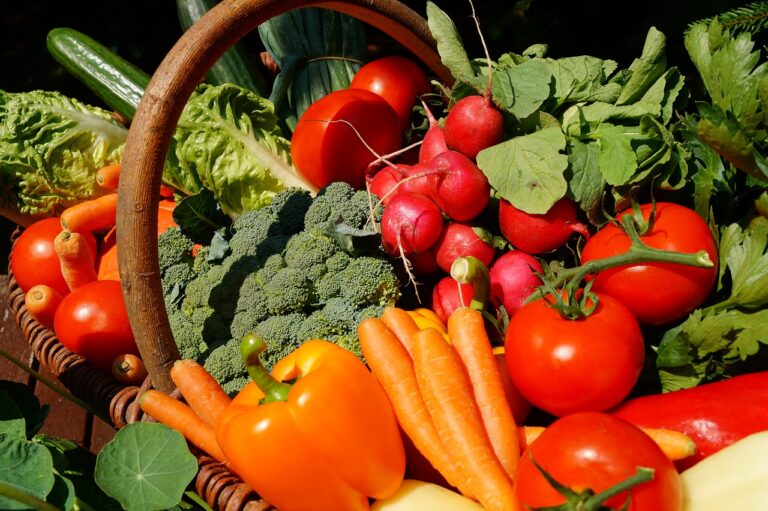The Growing Trend of Food Subscription Services
Food subscription services have become increasingly popular in recent years, offering consumers a convenient and hassle-free way to access freshly prepared meals, snacks, and ingredients delivered right to their doorstep. With busy lifestyles and a growing emphasis on health and wellness, these services have filled a niche in the market, providing a solution for those looking for convenient and affordable meal options without sacrificing quality or taste.
What are Food Subscription Services?
Food subscription services are programs that deliver meal kits, prepared meals, or grocery items to customers on a recurring basis. These services typically operate on a subscription model, where customers sign up for a weekly, bi-weekly, or monthly delivery of food items. Some services offer fully prepared meals that only require heating, while others provide meal kits with pre-portioned ingredients and step-by-step recipes for customers to cook at home.
Why are Food Subscription Services Gaining Popularity?
There are several factors contributing to the growing popularity of food subscription services:
- Convenience: Food subscription services offer a convenient way for busy individuals to access ready-made meals or meal kits without having to plan, shop for ingredients, or cook.
- Variety: Many food subscription services offer a wide range of cuisines and dietary options, allowing customers to choose from a diverse selection of dishes to suit their preferences.
- Quality: Food subscription services prioritize using fresh, high-quality ingredients to create delicious and nutritious meals that rival restaurant-quality dishes.
- Health and Wellness: With an increasing focus on health and wellness, food subscription services cater to individuals looking to eat healthier meals made with wholesome ingredients.
- Sustainability: Some food subscription services emphasize sustainability by sourcing ingredients locally, reducing food waste, and using eco-friendly packaging materials.
Types of Food Subscription Services
There are several types of food subscription services available to consumers:
Meal Kit Services
Meal kit services provide customers with pre-portioned ingredients and recipes to prepare meals at home. Customers can choose from a variety of meal options, including vegetarian, vegan, gluten-free, and more. Popular meal kit services include Blue Apron, HelloFresh, and Home Chef.
Prepared Meal Services
Prepared meal services offer ready-made meals that are fully cooked and only require heating before consumption. Customers can choose from a menu of dishes and have them delivered to their doorstep. Popular prepared meal services include Freshly, Daily Harvest, and Factor.
Grocery Delivery Services
Grocery delivery services provide customers with the option to have groceries, produce, and pantry staples delivered to their home on a regular basis. Customers can customize their orders based on their preferences and dietary restrictions. Popular grocery delivery services include Instacart, Amazon Fresh, and Thrive Market.
Benefits of Food Subscription Services
There are several benefits to using food subscription services:
- Time-Saving: Food subscription services save time by eliminating the need to shop for ingredients, meal plan, and cook from scratch.
- Cost-Effective: Many food subscription services offer competitive pricing options that are often more affordable than dining out at restaurants.
- Healthy Options: Food subscription services provide customers with access to nutritious and balanced meals made with fresh, wholesome ingredients.
- Convenience: Customers can customize their orders, schedule deliveries, and easily manage their subscriptions online or through mobile apps.
Challenges of Food Subscription Services
While food subscription services offer numerous benefits, there are some challenges to consider:
- Quality Control: Ensuring consistent quality and freshness of ingredients can be a challenge for some food subscription services.
- Environmental Impact: Packaging waste and transportation emissions from food deliveries can contribute to environmental concerns.
- Cost: Some food subscription services may be cost-prohibitive for budget-conscious consumers, especially compared to traditional grocery shopping.
- Customization: Limited customization options or dietary restrictions may pose challenges for customers with specific dietary needs or preferences.
Future Trends in Food Subscription Services
The future of food subscription services is expected to evolve to meet the changing preferences and demands of consumers:
- Personalization: Food subscription services may offer more personalized meal options based on customers’ preferences, dietary needs, and health goals.
- Technology Integration: Enhanced digital platforms and mobile apps can provide customers with a seamless and immersive experience for managing their subscriptions and orders.
- Sustainability Initiatives: Food subscription services may prioritize sustainability by incorporating eco-friendly practices, reducing packaging waste, and supporting local farmers and producers.
- Collaborations: Collaborations with chefs, food influencers, and culinary experts can help food subscription services create unique and innovative meal offerings.
Conclusion
Food subscription services have revolutionized the way consumers access and enjoy meals, providing a convenient and affordable alternative to traditional grocery shopping and dining out. With a focus on quality, convenience, and health and wellness, these services offer a diverse range of options to cater to diverse tastes and preferences. As the trend of food subscription services continues to grow, it will be interesting to see how these services evolve to meet the evolving needs of consumers in their quest for delicious and nutritious meals delivered right to their doorstep.
FAQs
What are the benefits of using food subscription services?
Food subscription services offer several benefits, including time-saving, cost-effective, healthy options, and convenience for customers looking to enjoy delicious and nutritious meals without the hassle of shopping and cooking.
What types of food subscription services are available to consumers?
Consumers can choose from meal kit services, prepared meal services, and grocery delivery services that cater to various dietary preferences, lifestyles, and convenience needs.
What are the challenges associated with using food subscription services?
Challenges of food subscription services include quality control, environmental impact, cost considerations, and limited customization options for customers with specific dietary needs or preferences.
What are the future trends in food subscription services?
Future trends in food subscription services include personalization, technology integration, sustainability initiatives, and collaborations with chefs and culinary experts to create innovative and unique meal offerings for customers.







